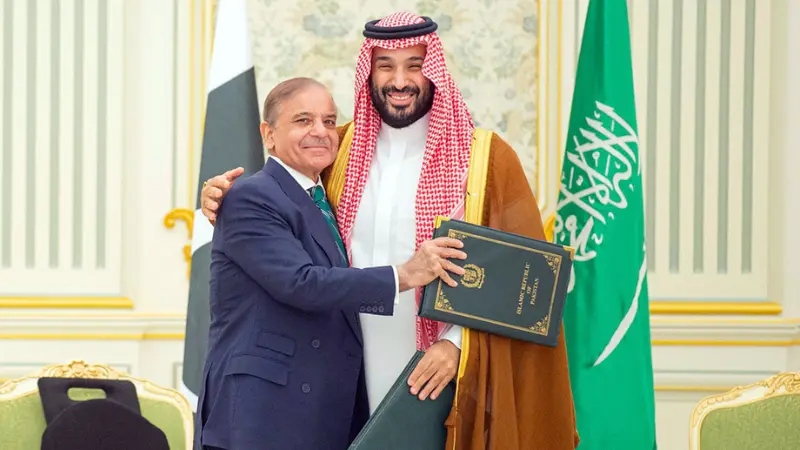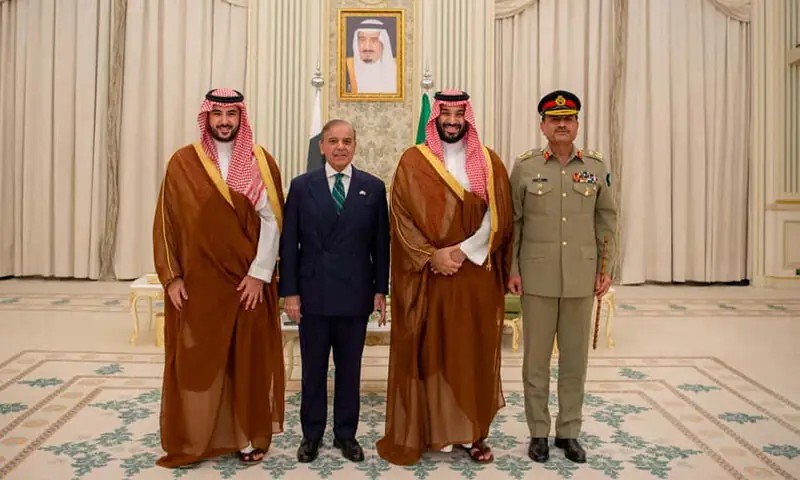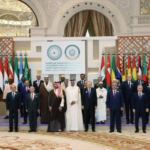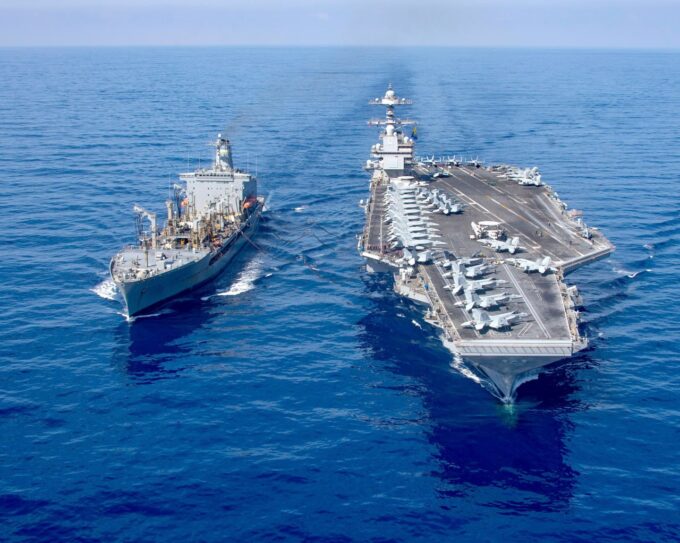ISLAMABAD: Pakistan and Saudi Arabia have signed a landmark “Strategic Mutual Defense Agreement”, a pact that elevates the two nations’ long-standing military partnership into a formal security alliance. According to a joint statement issued on Wednesday, the treaty declares that “any aggression against either country shall be considered an aggression against both,” underscoring a new phase of bilateral defense commitments.
The agreement was concluded during Prime Minister Shehbaz Sharif’s official visit to Riyadh, undertaken at the invitation of Crown Prince and Prime Minister Mohammed bin Salman (MBS). The joint communiqué highlighted that the pact is rooted in nearly eight decades of cooperation, underpinned by religious, cultural, and strategic bonds between the Kingdom of Saudi Arabia and the Islamic Republic of Pakistan.
Diplomatic observers note that while Islamabad and Riyadh have historically cooperated closely on defense matters—with Pakistani military trainers serving in Saudi Arabia for decades and Riyadh providing vital financial assistance to Islamabad during economic crises—the formalization of a mutual defense clause is unprecedented. It elevates their relationship to a level comparable with collective defense treaties, carrying potential implications for regional security dynamics.
The timing of the accord is particularly significant. It comes amid heightened instability in the Middle East, with Israeli strikes on Qatar drawing regional alarm and increasing concerns about the widening arc of conflict. While a Saudi official told Reuters that the agreement is “not a response to any specific event” but rather a reflection of deep-rooted ties, the security backdrop inevitably adds weight to the move. For Pakistan, the pact symbolizes not only diplomatic alignment with the Kingdom but also a renewed effort to project relevance in Gulf geopolitics.

Analysts argue that the deal also sends a message of deterrence to regional adversaries. By formalizing joint defense obligations, Riyadh and Islamabad are signaling their intent to stand as strategic partners in the face of external threats. The joint statement emphasized that the pact “aims to develop aspects of defense cooperation between the two countries and strengthen joint deterrence against any aggression.”
The symbolism of Prime Minister Shehbaz Sharif’s reception further underlined the importance of the visit. His aircraft was escorted by Saudi Air Force jets upon entering Saudi airspace—an honor rarely extended to visiting dignitaries. Later, he was formally received by Crown Prince Mohammed bin Salman at Al-Yamamah Palace in Riyadh, where he was accompanied by Pakistan’s Army Chief, Field Marshal Syed Asim Munir. The presence of Pakistan’s top military leadership underscored the defense-centric nature of the trip.
During official talks, both delegations reviewed bilateral relations and exchanged views on regional and international developments. Expressions of goodwill between Shehbaz Sharif and MBS highlighted the diplomatic warmth underpinning the visit, with both leaders extending wishes for each other’s nations’ prosperity and stability.
In the broader geopolitical context, the defense pact illustrates a convergence of Saudi and Pakistani security interests at a time of shifting alliances in the Middle East and South Asia. For Saudi Arabia, it strengthens an Islamic security partnership beyond its traditional Western allies. For Pakistan, it reaffirms its central role in Gulf defense architecture, while simultaneously bolstering ties with a nation that has long been a critical economic lifeline.












Leave a comment